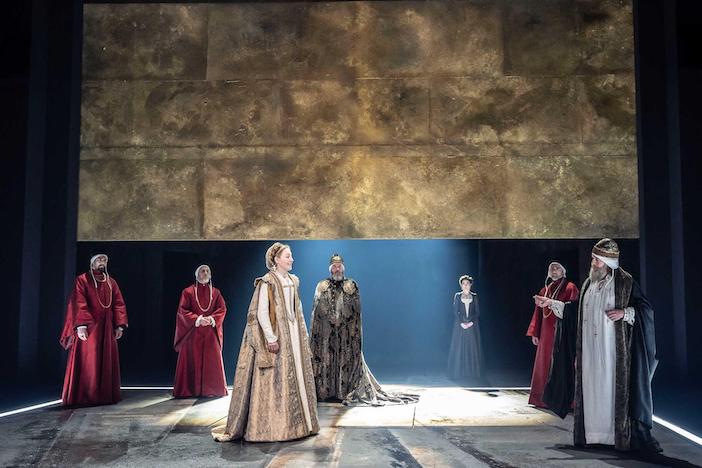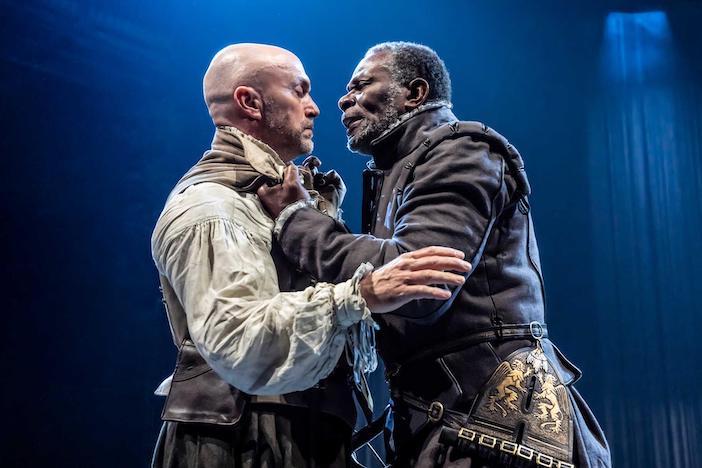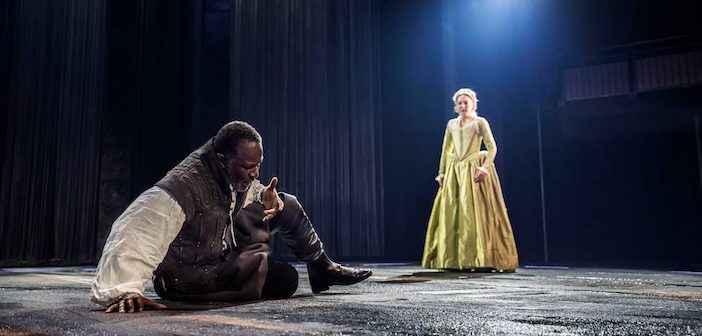It is now received wisdom that any staging of Shakespeare has to have a concept behind it. Sometimes, as with Rupert Goold’s Las Vegas-set Merchant of Venice, staged to enormous acclaim at Stratford and at the Almeida, these concepts can be breathtakingly clever and original, bringing new clarity and insight to the play.
At others, they can be nothing other than a piece of directorial distraction that is so thick with self-indulgence as to be almost unwatchable. Without wishing to name and shame, I have left plays during the interval that I revere, simply because I cannot face another moment’s self-important nonsense.
It is refreshing, then, that Tim Carroll’s new RSC staging of Othello is – apparently – devoid of such gimmicks. The stage is entirely bare, the costuming authentically Jacobean and John Douglas Thompson’s anguished Moor delivers his great speeches in a fine basso profundo. At times, it seems almost as if you could be watching a production from a century ago.

Juliet Rylance as Desdemona, with the company, in Othello
Yet even from the outset, this apparent traditionalism is undercut by touches that might seem inconsequential at first, but gradually grow in import as the evening wears on. Why is James Oxley’s fine, haunting score entirely sung a cappella? If Othello is the character said to suffer from epileptic fits, why is Will Keen’s Iago twitchy and apparently on the verge of his own seizure? And, as the final act moves into the inevitable part of the tragic arc, what is the significance of the illuminated trappings at the centre of the stage?
Carroll’s production is clear, brisk and gripping. Running at a tight three hours, it allows Juliet Rylance’s mellifluous, perplexed Desdemona all the sympathy and humanity that she deserves, as well as allowing Anastasia Hille’s Emilia the dignity and intelligence that this crucial role merits. The casting of Edward Hogg – a fine, underrated actor – as Cassio also allows this sometimes forgotten part to thrive; Hogg’s Cassio is no immature boy, as he is sometimes portrayed, but a middle-aged professional soldier whose too-eager embrace of Emilia places understandable doubt in Iago’s mind as to the relationship between her and him, and thus begins the spiral of jealousy and revenge that the play hinges on.

Will Keen as Iago and John Douglas Thomson as Othello
As, of course, the central axis between Iago and Othello does. The two styles of playing in the lead roles here are fascinating. Douglas Thompson is as traditional an Othello as I can imagine, an imposing figure who commands the stage with pathos and dignity. Yet he’s cast against Keen, an ever-mercurial actor whose intelligence and willingness to essay unexpected line readings means that his Iago can seem almost underplayed, a professional soldier who is improvising an evil scheme on the hoof rather than a character who is majoring in what Coleridge famously called “motiveless malignity”. Yet as the play goes on, it becomes almost impossible to keep your eyes from him. Even in silence, Iago is up to something, and the knowledge of what gives the play its grim, inevitable charge.
Judith Bowden’s set and costume design are both exemplary, and Paule Constable’s lighting is crucially darkened entirely for the murder of Desdemona; a brilliant directorial touch that makes the atrocity somehow all the more disturbing. This is a finely judged, cleverly wrought staging of the tragedy that manages to bring it to life in a subtle yet powerful way that is infinitely more successful than any number of meaningless gimmicks, and will serve either as the perfect introduction to the play or a reminder of its greatness to a seasoned veteran.
Othello is on now at the RSC, Stratford-upon-Avon, until 23rd November. For more information, including showtimes and prices, and for bookings, please visit www.rsc.org.uk.
Photos by Johan Persson




